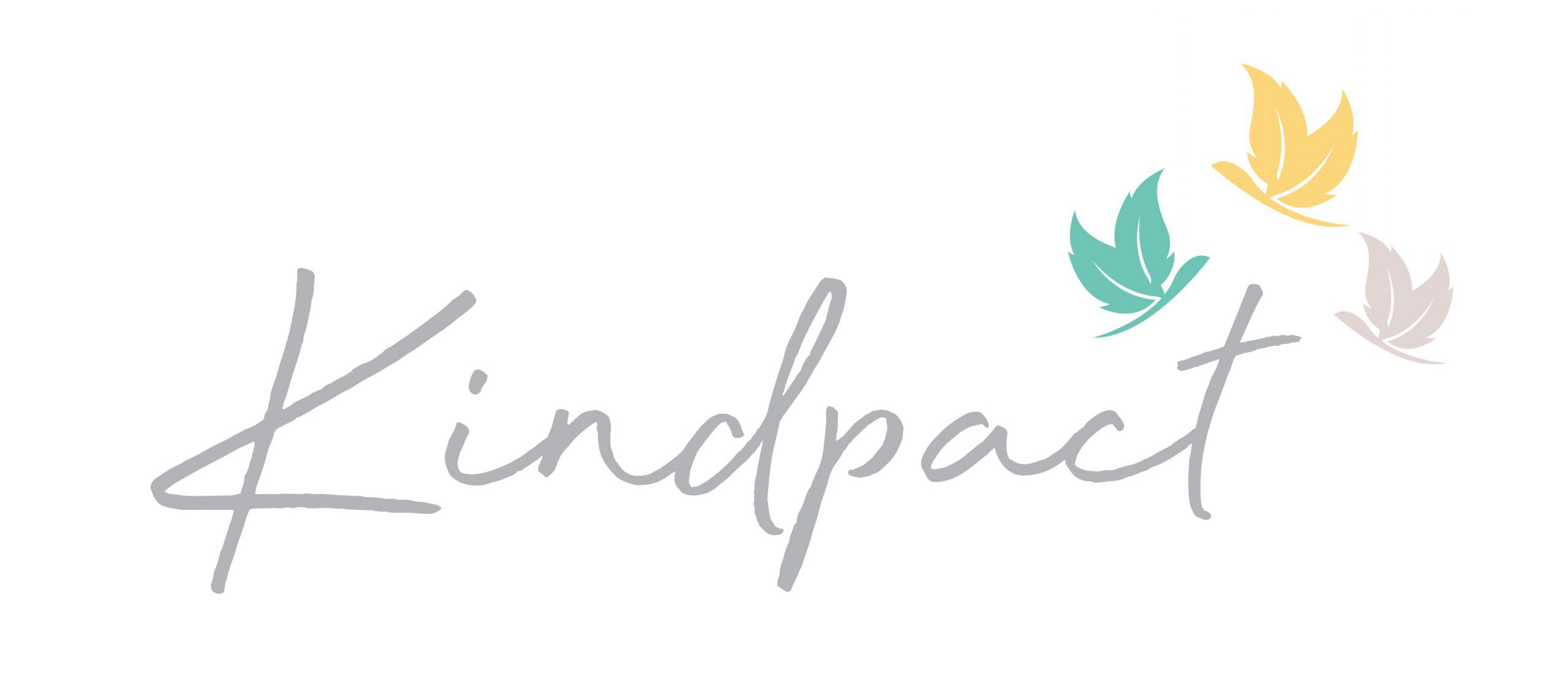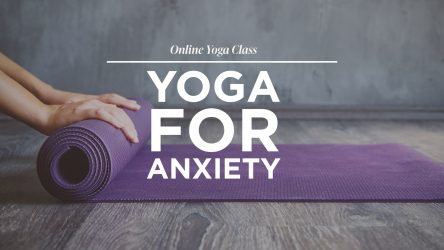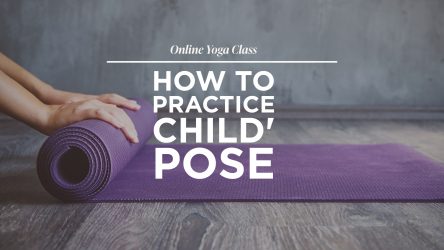Mindfulness-Based Stress Reduction, commonly referred to as MBSR, is a secular meditation program that was originally designed to treat and prevent stress but has grown to be used as a way to manage stress, chronic pain, and immune disorders. It is an excellent program for those who have no meditation experience and looking for a formal program to not only learn how to practice mindfulness but have support for when things get confusing or challenging during a practice.
While the practice of mindfulness to maintain physical and mental health has been around for generations, this technique was formally developed by Dr. Jon Kabat-Zinn in 1979. An MBSR program is eight weeks long where participants are trained in formal mindfulness meditation techniques including postures and stretches.
Dr. Jon Kabat-Zinn first decided to test out his ideas on patients of chronic disease who were not responding to conventional medication. He believed that mindfulness meditation allows patients to recognize the space between the experience of their pain and their reaction to it. This would allow them to see their pain more impersonally and suffer less from it. He turned out to be right and set up the first MBSR clinic which established strong evidence that MBSR improves the quality of life and reduces the suffering of its participants. Soon after this, many psychologists and neuroscientists became interested in studying the effects of this technique on the brain and nervous system. Today, MBSR is an evidence-based practice that is helping millions across the globe live more fulfilling lives.
Benefits of MBSR
Reduces stress, depression, and psychological distress
Thousands of studies conducted since the inception of MBSR prove that it can reduce stress and improve the quality of life of people with mental health disorders, suicidal tendencies, and acute psychological distress. It has also been observed to positively impact cancer patients, patients suffering from end-of-life depression, war veterans, nurses, troubled teenagers, and so on.
Provides relief from pain
In any situation of pain, there is the raw experience of pain and then there is the person’s evaluation of it and reaction to it. Generally, pain is given a high negative value and most people develop strong aversions to it. When we’re in pain, we often become sad, upset, angry or frustrated. MBSR can help a patient enter the space where they can observe the pain prior to their reaction to it. In almost all cases, the individual experiencing the pain is making the situation worse for themselves by strongly reacting to it in a negative way. Studies have found that MBSR can significantly alter the patient’s perception of their own pain-reducing their overall experience of suffering. ¹
Boosts cognitive functioning
MBSR has been found to improve mental clarity, focus, learning capacity, memory retention, spatial processing and mental reaction time.²
Improves sleep and reduces fatigue
As a result of its ability to reduce stress and anxiety, MBSR has been found to alleviate symptoms of insomnia, promoting better sleep for longer durations. This also leads to higher energy levels, increased vitality, productivity and motivation.³
What to Expect in an MBSR Course
MBSR is a formal program with live facilitators trained from an eight-week curriculum. Each session is usually 2.5 hours with formal meditation practices, discussions around the practices, and education around stress and the body. Participants will engage in activities with each other for discussion as well as to learn about topics such as mindful communication. Additionally, it is expected participants will practice on their own at home with guided practices.
Most programs will require an orientation, application process, or interview process to be accepted into the program to ensure that the program is right for the participant.
Who can benefit from MBSR?
MBSR can help all healthy individuals looking to lower their levels of stress and improve their quality of life. MBSR can also be an effective treatment for a variety of mental and physical conditions. However, if you are suffering from any disorder and want to participate in MBSR, make sure the teacher or institution you choose is equipped to handle your particular condition and any potential risks that may arise.
Who should not participate in MBSR programs?
It can be safely said that MBSR is not for everyone. People who are experiencing substance abuse, large life changes, or severe mental health issues. There have been cases of people reporting mental health issues or the worsening of existing problems after practicing some mindfulness techniques. For those with serious psychological disorders, MBSR can help but only if performed under the guidance of a trained professional who is experienced working with trauma or the specific disorder.. There should be complete transparency between the participant and facilitator about the participant’s medical history and medication use.
Mindfulness Books and Resources
While an eight-week MBSR program may seem like a lot, there are many ways to learn about mindfulness on its own or to continue your mindfulness practice and education after taking the program.
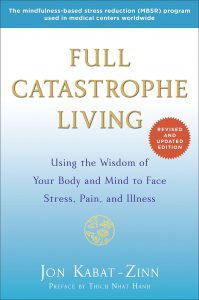
Full Catastrophe Living by Jon Kabat-Zinn
Full Catastrophe Living is a book for the young and the old, the well and the ill, and anyone trying to live a healthier and saner life in our fast-paced world.
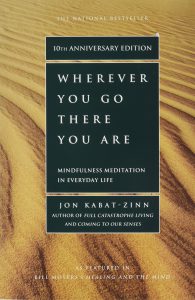
Wherever You Go, There You Are by Jon Kabat-Zinn
Another book from the creator the the MBSR program, this book is a little easier to digest than Full Catastrophe Living and perfect for beginners interested in learning more about bringing meditation into their daily living.
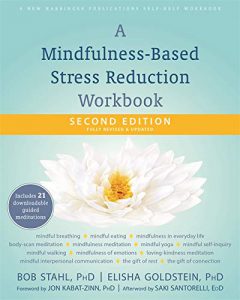
A Mindfulness-Based Stress Reduction Workbook by Bob Stahl and Elisha Golstein
Great on it's own or in conjunction with a Mindfulness-Based Stress Reduction 8 week program, you'll learn how to replace stress-promoting habits with mindful ones—a skill that will last a lifetime.
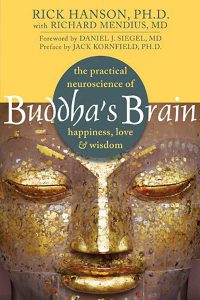
Buddha's Brain: The Practical Neuroscience of Happiness, Love, and Wisdom by Rick Hanson
By combining breakthroughs in neuroscience with insights from thousands of years of mindfulness practice, you too can use your mind to shape your brain for greater happiness, love, and wisdom. Buddha's Brain draws on the latest research to show how to stimulate your brain for more fulfilling relationships, a deeper spiritual life, and a greater sense of inner confidence and worth.
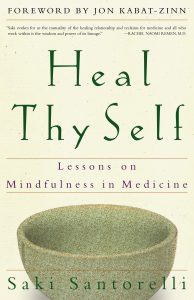
Heal Thy Self: Lessons on Mindfulness in Medicine by Saki Santorelli
Saki Santorelli, director of the nationally acclaimed Stress Reduction Clinic, explores the ancient roots of medicine, and shows us how to introduce mindfulness into the crucible of the healing relationship.
References
Zeidan, Fadel and David Vago. “Mindfulness meditation-based pain relief: a mechanistic account.” Annals of the New York Academy of Science (2016): 114-127.
Zeidana, Fadel, et al. “Mindfulness meditation improves cognition: Evidence of brief mental training.” Consciousness and Cognition (2010): 597-605.
Tsai-LingChena, et al. “Effects of mindfulness-based stress reduction on sleep quality and mental health for insomnia patients: A meta-analysis.” Journal of Psychosomatic Research (2020).
